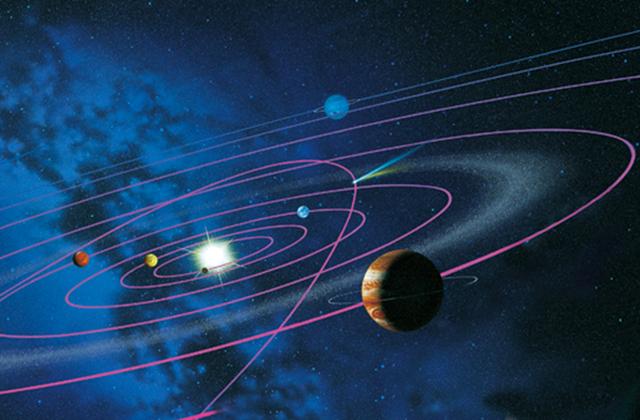Walter was a geologist specializing in paleomagnetism, Luis was a physicist and I was a nuclear chemist. And now here we were telling paleontologists that we had solved a problem that had eluded them for over a century. It's not terribly surprising that they didn't embrace it immediately." As Luis Alvarez joked: "We were caught practicing geology without a license."
沃尔特是地质学家,他的专长是古磁学;路易斯是物理学家;我是核化学家。现在我们却在这里对古生物学家说,我们已经解决那个困扰了他们一个多世纪的难题。他们没有马上接受我们的看法,这是不足为奇的。”路易斯·阿尔瓦雷斯开玩笑说:“我们没有执照就在搞地质学,结果当场被人捉住了。”
But there was also something much deeper and more fundamentally abhorrent in the impact theory. The belief that terrestrial processes were gradual had been elemental in natural history since the time of Lyell. By the 1980s, catastrophism had been out of fashion for so long that it had become literally unthinkable. For most geologists the idea of a devastating impact was, as Eugene Shoemaker noted, "against their scientific religion."
但是,人们憎恨撞击理论有着更深层次的原因。自莱尔时代以来,大家一直认为,地球上的过程是渐进的,这是自然史的一个基本要素。到20世纪80年代,灾变说早已过时,实际上成了一种不可思议的理论。对大多数地质学家来说,关于破坏性极大的撞击的见解,正如尤金·苏梅克指出的,“违反了他们的科学教义”。

Nor did it help that Luis Alvarez was openly contemptuous of paleontologists and their contributions to scientific knowledge. "They're really not very good scientists. They're more like stamp collectors," he wrote in the New York Times in an article that stings yet.
路易斯·阿尔瓦雷斯公开蔑视古生物学家和他们对科学知识的贡献,这也无济于事。“他们根本就不是个好科学家,他们更像是集邮者。”他在《纽约时报》的一篇文章里写道。这篇文章至今依然刺人。
Opponents of the Alvarez theory produced any number of alternative explanations for the iridium deposits—for instance, that they were generated by prolonged volcanic eruptions in India called the Deccan Traps—and above all insisted that there was no proof that the dinosaurs disappeared abruptly from the fossil record at the iridium boundary. One of the most vigorous opponents was Charles Officer of Dartmouth College.
阿尔瓦雷斯理论的反对者对铱的沉积提出了许多不同的解释──比如,他们认为这是由印度源源不断的火山喷出物产生的,即所谓的“德干暗色岩”(“暗色岩”是瑞典文,指一种熔岩;“德干”指今天的德干半岛),他们尤其坚持认为,根据铱界的化石记录,没有证据表明恐龙是突然消失的。达特茅斯学院的查尔斯·奥菲瑟是态度最坚决的反对者之一。













